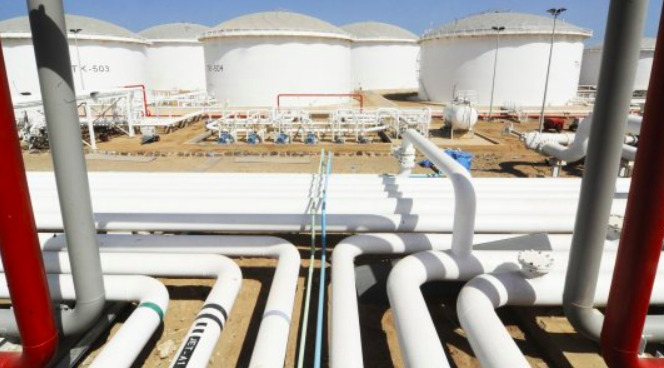Ethiopia, whose energy needs are constantly growing, remains dependent on Djibouti’s infrastructure policies – and keeps demanding more. But the announced extension of the port of Horizon could be compromised by another project: the Damerjog petrochemical complex.
Djibouti’s business landscape is always rife with contradictory rumours.
But, on the side of the management of the Horizon oil terminal, a subsidiary of the Dubai-based Emirates National Oil Company (Enoc) in Djibouti, “it’s on the record”.
An undersized terminal
The expansion of the port, whose tanks supply the Ethiopian market with at least 95% of its hydrocarbon needs (the rest comes from Sudan), “will begin shortly”.
This will add more than 100,000 cubic metres of capacity to the current 370,000 cubic metres. Enough to meet the insistent pressure from Ethiopia, whose needs have been increasing by 9% each year for the past ten years (4.2 million tonnes in 2018).
Since its construction in 2008, Horizon has been designed for 12 annual rotations. Today, Horizon is overheated with nearly 28 rotations, forcing ships to wait their turn at sea.
“This costs Ethiopia tens of millions of dollars a year in parking fees,” said a source close to the issue.
According to other sources, nothing has been decided yet because several disputes are blocking negotiations with the authorities.
In particular, the amount of the royalty due to the Doraleh Oil Terminal Pier Management Company (SJTP), nationalized in 2018. And that is without the ghostly presence in the capital — talked about everywhere — of the businessman Abdourahmane Boreh, ex-patron of the Port Authority, now an opponent in exile.
“In addition, Djiboutians feel a little that, like DP World at the container port of Doraleh, Horizon Terminals has preferred to invest in its own Gulf terminals rather than in Djibouti,” said a specialist.
Another reason why so many doubts remain is that, just as the Horizon extension hypothesis was resurfacing, the petrochemical complex project at Damerjog, near the Somali border, suddenly accelerated at the end of 2019 after being silent for a year.
A wholly-owned subsidiary of the Djibouti Ports and Free Zones Authority (DPFZA), Damerjog has finally recieved $125m in financing from Afreximbank “which should enable it to start work on the pier, which will take between 18 and 24 months to complete”, confirmed Aboubaker Omar Hadi, president of the DPFZA.
A competition that is going global
“But, if Damerjog goes ahead, the Horizon extension may not happen anymore,” says one professional.
Because Damerjog, which is intended to be a future competitor of Fujairah (United Arab Emirates), will include the 2.5 million tonne refinery by Hong Kong’s Chimbusco, a 600,000 t cement plant, a 2.30 MW power plant, a ship repair area, a metal works, the landing point of a 767 km gas pipeline from Ethiopia, and a 300,000 m3 oil depot.
Targeting not only Ethiopia but also the Kenyan and South African markets, the French-owned Rubis, already present in the country, the Swiss Mercuria, PetroChina, and the Nigerian Sahara Group have all shown interest.
All of which is enough to intensify the competition.
“Between these oil traders and Horizon, not between the latter and Damerjog”, Aboubaker Omar Hadi wanted us to believe.
“While Horizon has repaid all its financing, it may be easier for it to lower its storage taxes than Damerjog, which will have to repay its loan,” predicted one analyst.
It’s going to be an uphill battle.
By Rémy Darras




























